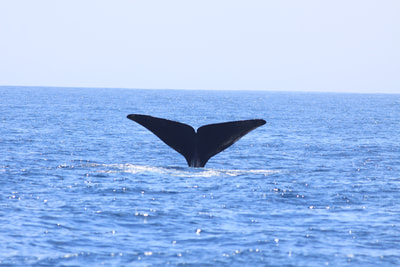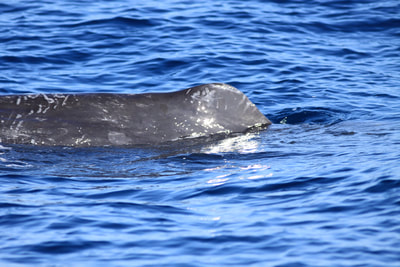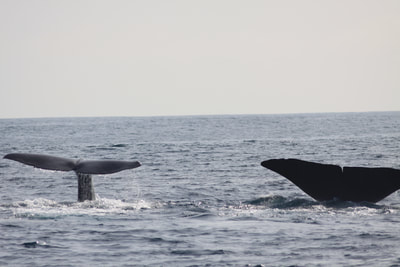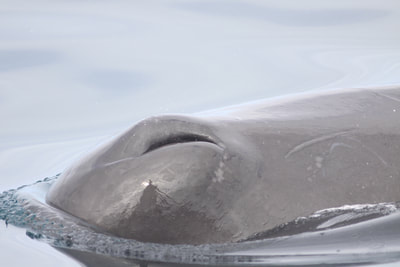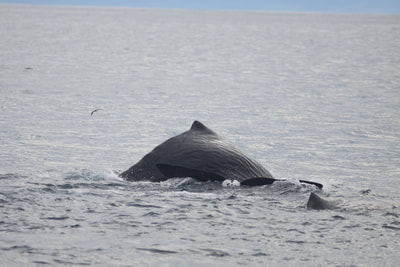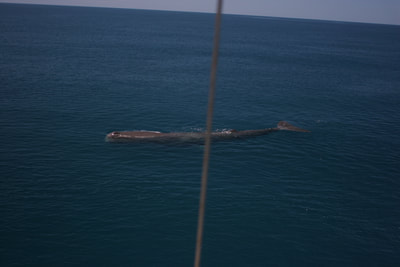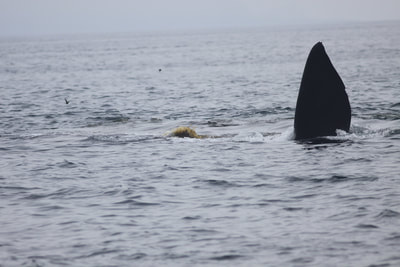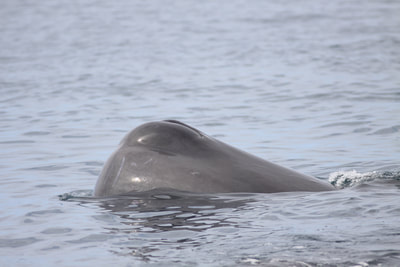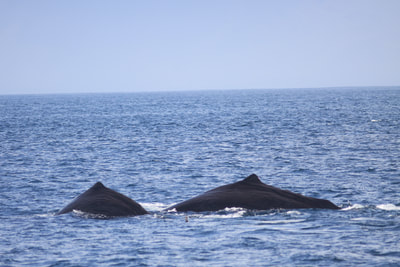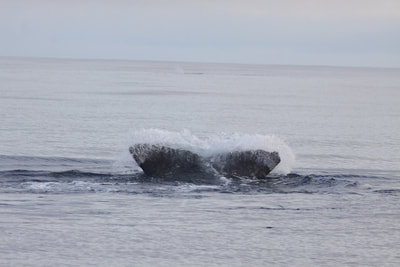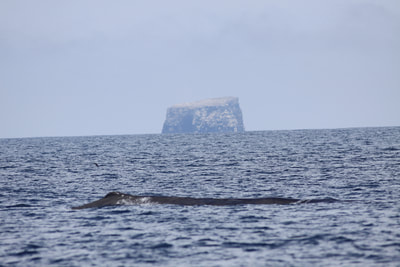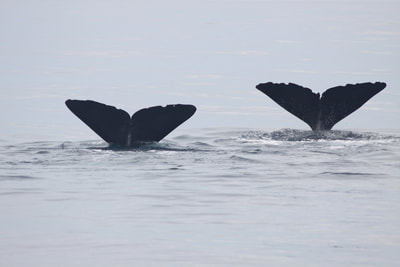The Whitehead Lab and Sperm Whales
The Whitehead Lab began collecting acoustic, behavioral, and ecological data on sperm whales off the Galápagos Islands in 1985. With data now spanning over 30 years, fascinating insights on the social behaviour and culture of sperm whales have been uncovered. Sperm whales in the region form a complex, multi-level social structure in which the broadest level--the clans--can be identified by distinct vocal dialects and characterized by different movement patterns, distributions, ecological success, and social behaviour. In 2005, we extended our geographic scope to the waters off Dominica (Eastern Caribbean), where Dr. Shane Gero (former Ph.D. student) established the Dominica Sperm Whale Project (link here). Today, the whales off Dominica are likely the most well-known and extensively studied in the world. More recently, our Lab's focus has expanded to cover much of the Lesser Antilles, revealing unexpected new details on the distribution and site fidelity of this oceanic species.
The Eastern Tropical Pacific and Caribbean sperm whale cases have served to push forward the recent recognition of culture as a key for the conservation of species in which behavior and ecology are highly shaped by social learning. Current efforts of our Lab members are aimed at improving our understanding of how culture relates to distribution, population dynamic and behaviour of sperm whales and to elucidate the underlying structure and evolution of their complex vocal communication system.
The Eastern Tropical Pacific and Caribbean sperm whale cases have served to push forward the recent recognition of culture as a key for the conservation of species in which behavior and ecology are highly shaped by social learning. Current efforts of our Lab members are aimed at improving our understanding of how culture relates to distribution, population dynamic and behaviour of sperm whales and to elucidate the underlying structure and evolution of their complex vocal communication system.
Current Projects
|
Ana Eguiguren (Ph.D. Student): While studying sperm whale communication has revealed a great deal about sperm whale sociality and culture, it is still unclear how these sounds are structured and what are the “rules” with which they are exchanged. For my project, I will derive tools from human musicology to explore these questions. I am specifically interested in finding if there are universal rhythmic traits in sperm communication, and if any are variable across oceans, clans, and social contexts. Studying this will allow us to compare sperm whale communication to that of other species, and further our understanding of processes that shape communication.
|

